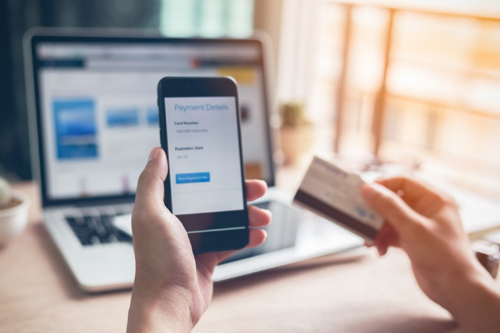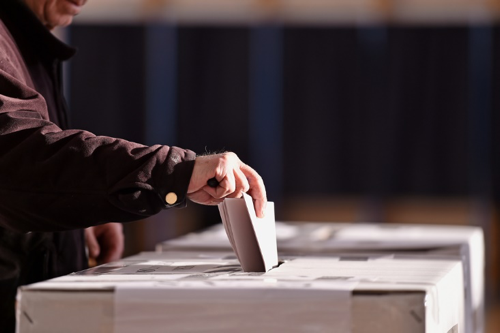13 Different Blockchain Use Cases Beyond Cryptocurrency
Blockchain and Bitcoin are perhaps best known as methods that ensure the secure and anonymous trading of cryptocurrency, but many mistakenly limit it to only this use. The underlying blockchain technology of a distributed ledger can eliminate error and easily identify malicious activity, such as fraud or security hacks. As it ensures trustless and secure transactions for its users, it offers a significant benefit to a host of industries, from real estate to IoT and the entertainment industry.
We’ll elaborate more in this guide.
Finance
Banking
As the more traditional investment choice and one of the many middlemen blockchain is seeking to circumvent, the two parties are in direct competition. For the meantime, however, cryptocurrency and blockchain technology are not competing with banks either in scalability or mass adoption. But that doesn’t mean that blockchain might have other benefits which include: smoother and faster KYC and due diligence, digitization that replaces paper, simpler operations and lower overhead costs, and lower rates of fraud.

Since a true blockchain disruption in the banking sector requires a global network, however, this sector might not be so quick to adopt blockchain technology as other sectors. Ripple, a blockchain solution for global payments as well as a cryptocurrency, aims to facilitate this revolution by focusing on cooperating with traditional banks and financial organizations.
The Tax System
Blockchain’s ability to verify information and data from multiple individuals, organizations and third parties can be a boon to governments. This can be particularly useful when dealing with complications such as tax withholding, VAT and calculating the profit that originates from different departments and services of an organisation. Although one might think developed countries would be first to adopt blockchain for their governments, we might instead see it more readily adapted in third-world countries who have fewer legal prohibitions that might block its use.
Insurance
Wholesale insurance can have large overhead costs and errors, but blockchain’s ability to offer quick and easy access to be able to update data and information can minimize these errors, as well its ability to gather data from mobile phones or sensors. Blockchain technology can also ensure the connection of hardware and software and the transmission of data securely and anonymously – an important factor for the insurance sector and a particular challenge in the era of IoT.
Unfortunately for the insurance industry, the lack of trust in the financial services industry has extended to it as well. Smart contracts in insurance can assist in a more transparent and efficient experience, for example, by preventing insurance fraud through its ability to quickly identify multiple claims for the same accident.
Instant payments
The distributed ledger of blockchain technology enables secure peer-to-peer transactions, which was not possible before. This has huge ramifications for traditional payment platforms, which allocate a portion of every transaction to processing fees or a percentage to the platform. Blockchain technology seeks to provide instant peer-to-peer transactions on a global scale without transaction fees of any kind. In response to the current challenges blockchain faces in scalability, however, many projects have sprung up.

The Lightning Network is one project which focuses on smart contracts to enable instant payments throughout its network. Raiden Network is another blockchain project focused on near-instant scalable payments with low transaction fees. Built on top of Ethereum, it works with any ERC20 token.
Capital Markets
The current process involved in placing trades, with multiple intermediaries, can take several days to complete. Blockchain technology, on the other hand, can decentralize and automate this process through the use of smart contracts. In addition, it offers another way to make a public offering (IPO) that is faster with fewer regulations. As the blockchain comes closer to solving the issue of scalability, its full entrance into capital markets will become ever more enticing. KickICO is a blockchain project that has seized this opportunity by enabling companies to launch an ICO campaign on their platform.
Traditional markets have started to follow. Recognizing the benefit of blockchain technology, the operator of the New York Stock Exchange announced the opening of Bakkt, a platform that would enable the transaction of Bitcoin on a regulated global network.
The Government and Non-Profit Sector
Voting
In many countries all over the world, elections are neither free nor fair. Corruption and bribery are rampant, and many elections are held in the name of democracy but rigged by the government.

Even in more technologically advanced countries, electronic voting booths have been subject to security breaches, which could possibly alter election results. Agora is a blockchain-based project focused on enabling transparency and tamper-proof elections that boasts the world’s first test of blockchain voting in the Sierra Leone Presidential Elections in March 2018, which the government later denied. The technology remains controversial in legislation and elections and may take a while for mass adoption.
Border Control
With immigration, a heated topic both in the United States and Europe, more and more countries are needing to dedicate resources to border control. With its concept of an identity that can be verified without being under the control of a third-party such as the government, blockchain technology can quickly and safely check citizenship without exposing private data to the public. Smart contract technology can be combined with biometric information kept in the immutable ledger, and data can be easily updated and new regulations quickly applied when a government changes its immigration policies.
Factom, a project focused on the secure collecting and packaging of data on the blockchain, won a contract this year with the United States Department of Homeland Security for an initiative on border security.
Education
Since blockchain technology offers immutable, secure and cheap record-keeping, it can be an ideal application for the educational sector. San Franciso’s Holberton School of Software Engineering became the first school in the world to grant its students certificates on the blockchain technology.

In addition to better record-keeping, blockchain technology can also offer better tuition rates. As more and more students seek quicker ways to their first well-paying job, they will demand a faster and less expensive alternative to the current educational system (especially the exorbitant tuition fees of the US). Recognizing the flaws inherent in the current university model, ODEM has created alternative educational opportunities for students via the blockchain. The decentralized educational platform offers smart contracts to exchange educational courses between lecturers and students. It includes a network of over 200 professors from top universities in the United States.
Charitable Donations
Charitable donations almost always involve a dilemma on the part of the donor: How much of your donation really goes to the person in need? Non-profits and charities are rampant with cases of fraud and abuse, but even those intent on making a difference might lose trust with donors due to a lack of transparency, mismanagement, and large administrative costs, which may or may not demonstrate their ability to make a difference.
Among the organizations you can now donate to using the blockchain include the United Nations World Food Programme (WFP) and UNICEF game changers. Even the CryptoKitties game is being used to raise money for saving sea turtles.
Other Applications
Copyright Infringement
Artists and creatives are constantly concerned about easy and illegal downloading of their books, music and movies. In a move to start moving more music production to the blockchain, Grammy award winner Imogen Heap recorded the first song ever on Ethereum.

Through the use of the blockchain, an artist’s song can be attached to a digital wallet, delivering the artist immediate compensation from listeners. This makes illegal copying and distribution of creative work next to impossible without the artist’s explicit permission. Elastos understood the challenge faced by artists and aims to provide a way for them to own, distribute and monetize digital assets through the blockchain.
Gaming
Perhaps the best-known example of gaming in the blockchain was from CryptoKitties, a game featuring digital kittens on Ethereum which drew attention to challenges in the blockchain’s scalability. It can assist in helping casinos and gambling platforms to be safe and secure for users without incurring high costs to the platform.
In light of this, blockchain projects such as FunFair provide decentralized gaming technology platforms which offer smart contracts on the Ethereum blockchain.
The Supply Chain
The supply chain, often spanning multiple geographic regions, is extremely complex. It involves multiple parties and invoices, a lack of transparency, fake inventory – all over a lengthy period of time and stages. In contrast, the blockchain’s ability to provide transparency and security enables the tracking of merchandise in addition to who its owner is and the state of the merchandise.

Today, blockchain is being applied in the food industry, where the ability to trace food origins is vital for protecting consumer’s health and trust in the product. Hyperledger, a project composed of many open source blockchain and related tools, has stated that it will apply its product towards the elimination of all illegal fishing.
Healthcare
The healthcare industry is filled with records, many that need to maintain total privacy while at the same time being shared with multiple parties. In addition, it can be extremely useful in today’s modern medical IoT infrastructure which includes mobile, tablet, and various medical devices connected to the internet. Unfortunately, all of these points of connection offer open targets for hackers. In addition, the medical field suffers from Medicare fraud, which totalled $16.2 billion in the United States in 2016. Blockchain’s ability to store records securely while verifying the data without the need for a third party can be an extremely useful application in the medical industry. MIT has started a project called
MedRec that attempts to integrate the new technology into the medical field.
